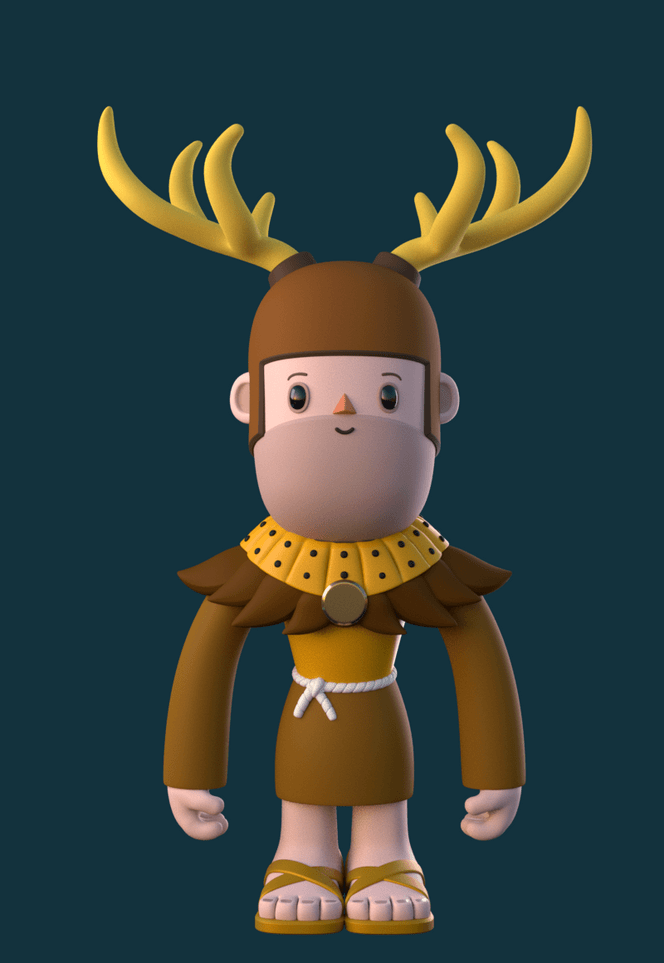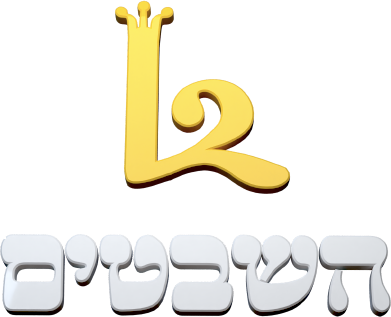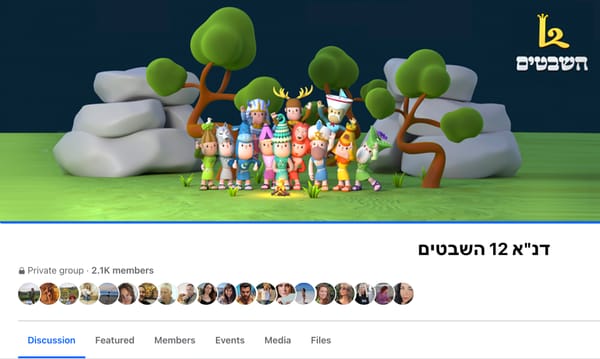8. Tribe of Naftali

Naftali is Bilha's second son, Rachel's slave, and Jacob's sixth son. In the Torah, the character of Naftali is not detailed in many events, but he is mentioned in the blessings of Jacob and Moses. In Yaakov's blessing, Naftali is described as "Ayala Shlocha who gives Emery Sheffer," a description that implies agility, freedom of movement and impressive expressiveness.
Jewish tradition attributes to the tribe of Naftali qualities of speed, courage and fine expression. The Naftali tribe's inheritance was in the Galilee, a fertile and beautiful area. Our sages tell us that the people of Naftali were the first to bring good news, and that they were quick in fulfilling tasks.
Greetings
Rachel's blessing at birth (Genesis 30)
״And again Bilhah, Rachel's servant, was with child, and gave birth to a second son.
And Rachel said, I have had a great fight with my sister, and I have overcome her: and she gave the child the name Naphtali.״
Jacob's Blessing (Genesis 49)
״Naphtali is a roe let loose, giving fair young ones.״
The Blessing of Moses (Deuteronomy 33)
"And Naftali said: Naftali is satisfied and full of God's blessing, the sea and the south will inherit."
- Father: Jacob
- Mother: Bilha (Rachel's slave)
- Date of birth: H. Sivan
- Flag: Ayala
- Stone in the breastplate: where
- Linked colors: brown, yellow, gold
- Domain: EasternUpper Galilee
- Associated month: Maple
- Sefirah: yesod
- light: repeating
- Element: The water in the air
- Side: North near Dan and Asher
- Desert Census Quantity: 53,400
- Day of the week: Monday
- Creation: Heaven and Earth
- Star: Jupiter
- Letter: - K
- Attaching the Name of Being: The YHV
- Sense: Laughter
- Lucky: Pisces
- Psalms: Chapter 126
- Organ: Spleen
- Home: Enemies
Positive qualities
- Happy with some
- Independent
- Squirming
- Have a creative sense
- Willed
- Agility
- Mobility and switchability between modes
- Persistence
- Original
- Aesthetics
- Hospitality
- Authors of different minds
- laughter
- Get what you want
- Parental Respect
Negative features
- Wandering instinct
- Able to disappear
- Ahead of their time
- Short thread
- arrogance
- Invasion of spaces that are not theirs
- Not always understood
- envy
- Eye trouble

Spiritual role
The tribe of Naftali plays a special spiritual role as bearers of a message of efficiency and improvement for all tribes. Their ancient wisdom allows them to bridge different minds and messages, and unite people for a higher purpose. Their ability to connect spirit and matter gives them the power to transform negative energies, similar to the number 8, which symbolizes endless cycles and transcendence. They have the power of unity and connection, because they end the zodiac they are connected to the depth of laughter and joy, not only as momentary entertainment but as a deep understanding of the importance of humor in life and the ability to laugh at themselves. Out of inner joy and reconciliation, they remind others to be partly happy, fulfill the verse "Then our mouth and tongue will be filled with rina," and demonstrate the concept of "Naftali is satisfied" - the ability to be happy with what is.
Spiritual correction
Coping with complex emotions: Naftali has a deep and convoluted emotional world that does not always come out, encounters toxic emotions on a daily basis and is asked to transform them. People around them can not always understand them and against this background can form shortcomings. A month was born on Adar that has a mitzvah to be happy out of an inverse reality of decree, and therefore the tribe has an inherent polarity – just like tefillin that connects hand and head, action and thought. Sometimes there will be mood reversals from love to jealousy, etc.
The sanctity of the body: Naftali will usually be very beautiful and they are very preoccupied and cling to their external appearance and material subjects in order to be an anchor for them, which may cut them off from the depth and being of things. Can invest a lot of money in their self-care (not necessarily appearance, enrichment activities and development themselves)
"If I don't have me, who am I": Fatali has become accustomed to living life with a worldview that says they have to do things themselves. This is also implied in their name: "Pat-Li" – my bread. The issue of their financial independence is extremely important to them, and they like to work hard and see the results. Hate being dependent on others in any way, their independence is very important to them. Most of the Naftali children suffered from a lack of love at home, and often relied on achievements to feel safe and loved. Through the good certificate they brought, they gained environmental appreciation. They must learn to trust others and deepen and give emotional connections with a positive mindset that will also be for them. Sometimes they can radically disconnect from people and move on to their next goal. They must learn to linger and give a sense of security to those around them.
In relationships: They will strive very much to establish a home and share, but there is a place in them that really needs freedom and space and therefore it is important that they choose their partner carefully otherwise they can abandon systems suddenly. Their pace is also more agile than those around them and they must respect their partner's developmental pace.

"I am here present in the country, I love to wander and search for my next point of interest, to meet and meet at my own pace, to create and beat my heart. In my life connects heaven and earth and heals all the tissues of the body, the heart to the natural flow of things knowing that everything is working out for the better."
Mantra for healing: Giving me time to expand and change and allow for changes in my life






